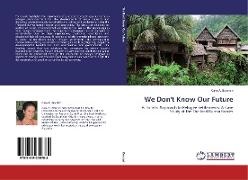Read more
This book highlights the importance of grassroots projects geared towards refugee empowerment for the development of more humane and dignified, environmentally sustainable and self-reliant settlements using the Thailand Burma border region as a case study. The discussion explores an outline of social, environmental and educational issues. The paper argues that today s refugees have the capacity to develop cultural patterns of sustainability due to their experiences, traditional knowledge and situational lack of resources. It applies a holistic transdisciplinary approach in order to transform today s refugee settlements into permaculture communities utilizing sustainable technologies while highlighting long-term developmental benefits for host communities and governments. The findings argue that the solutions for tomorrow lay within today s humanitarian disasters. Future refugee influxes and the conflicts that cause them can be prevented through the education of today s refugees as agents of change and the early planning that it can result in through the demonstration of positive outcomes to policymakers.
About the author
Cara A. Boccieri has completed her MA in International Peace Studies at the United Nations University for Peace in Costa Rica. She had lived and worked in Southeast Asia for many years prior to returning to carry out research on the Thailand Burma border. Cara currently undertakes policy and advocacy work for migration support services in Australia

